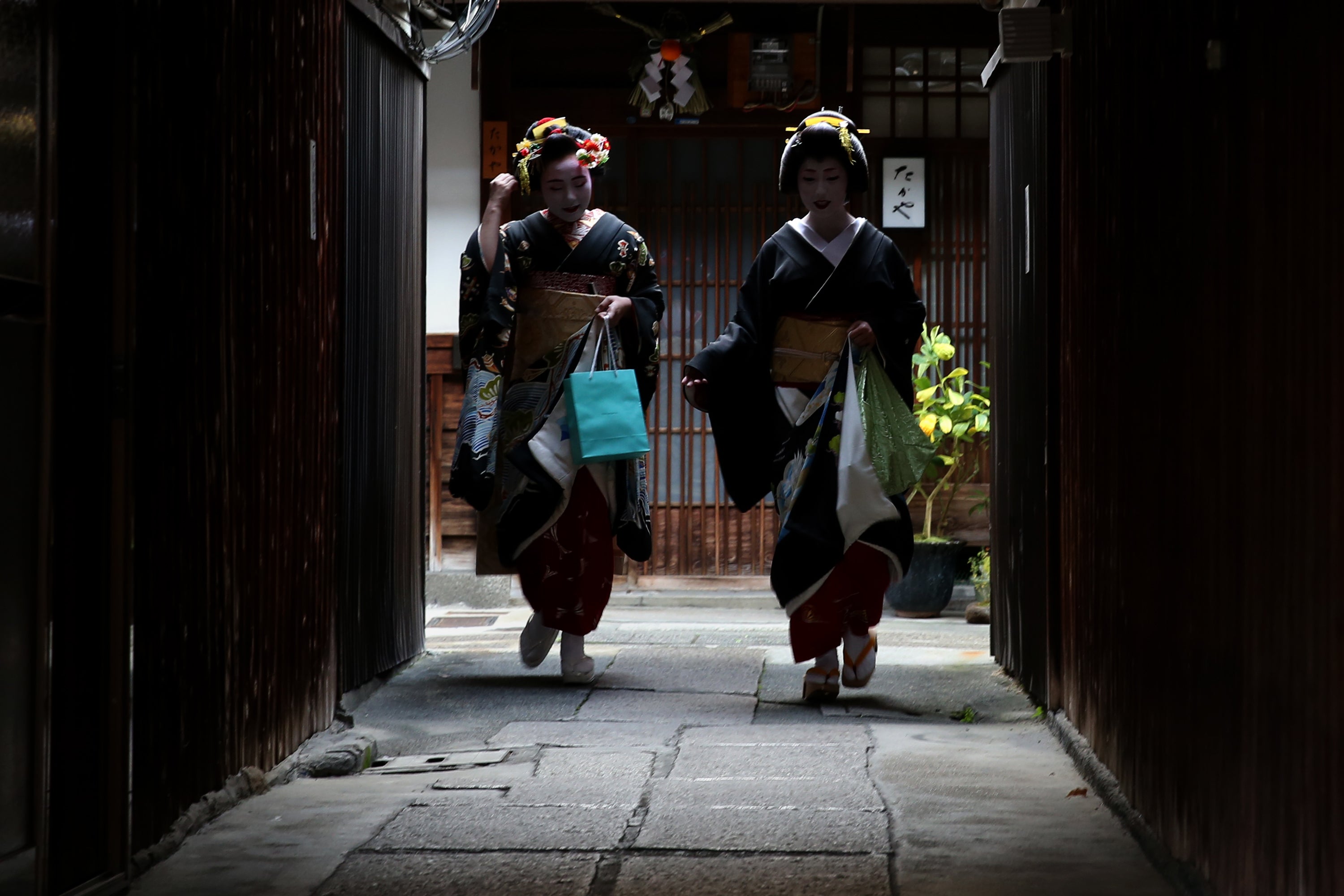Kyoto to ban tourists from Geisha district over ‘out of control’ behaviour
Small lanes of Geisha district will now be restricted to only artists, residents and clients
Local officials in Japan’s popular Geisha district in Kyoto will shut off access to “paparazzi” tourists who harass and trouble the globally recognised Japanese women artists, starting April this year.
The historic Gion district’s local council has said it will now ban sightseers and tourists into the alleys and streets housing geisha and maiko (teenager trainee geisha) after facing years of complaints over growing buzz of photography.
Known to be a tourist-heavy spot, Gion is thronged by hundreds of thousands of people visiting Kyoto who seek to photograph Japan’s famous professional entertainers known for their trademark kimonos and white faces.
Isokazu Ota, Gion’s representative secretary of the town South Side District Council, told CNN that the small alleys will be completely shut off to tourists by next month with the growing menace of tourists.
Starting April, the alleys which also host several restaurants and teahouses, will only be open for the geisha, their clients, and residents of the district, according to a report by the South China Morning Post.
In 2019, local authorities rolled out an on-the-spot fine for tourists troubling geishas. The professional artists were being chased down private streets in the district, photographed without their consent, and even subjected to foreign visitors touching their kimono and elaborate wigs.

The problem persists as of now, Mr Ota says, as tourists in large numbers throng to Japan after the Covid-19 pandemic with little respect for Japan’s social norms and etiquette.
“...I think the foreign tourists waiting for maiko to come out in the alleys of Gion’s photography-prohibited areas know the rules but are ignoring them. Even if we warn tourists, it is difficult to get through to them at this point,” he told CNN.
Before the pandemic, people were also reported to pull out geisha’s hair ornaments and hit them with cigarette butts.
Peter Macintosh, a Kyoto-based Canadian author and expert on geisha culture, told SCMP: “It’s crazy behaviour. It’s completely out of control.”
Notices prohibiting photography and imposing a hefty ¥10,000 (£52) fine have also gone unheeded.
It asked tourists to get consent before taking a selfie with, or photo of, a geisha, and that they can only do this on public roads.
The local official points out this fine cannot be enforced on the main thoroughfare like Hanamikoji Street running through the area, apart from its ineffectiveness without any legal standing.
Now by finally sealing off the traditionally and culturally rich part of Kyoto, the local council and the city government is hoping they can protect geisha and maiko, and also preserve the Japanese art and their custodian artists.
The community was already reeling under the pandemic effect from 2020 on the expense front as the lockdown brought their engagements down by 95 per cent. Geisha also had to comply with new rules of not pouring drinks for customers or touching them even to shake hands, and sitting two metres apart.
Join our commenting forum
Join thought-provoking conversations, follow other Independent readers and see their replies
Comments
Bookmark popover
Removed from bookmarks